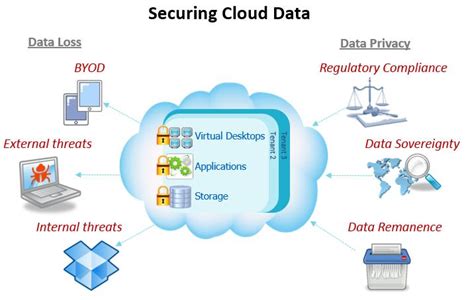Cloud computing has become an increasingly popular way for businesses to store and access data. However, with the convenience of cloud computing comes a number of security concerns that must be addressed in order to ensure the safety of sensitive information. In this article, we will discuss some common security concerns associated with cloud computing and how they can be addressed.
One of the most common security concerns associated with cloud computing is data breaches. Data breaches occur when unauthorized individuals gain access to confidential or sensitive information stored on a cloud server. This type of attack can have serious consequences, including financial losses, reputational damage, and legal liabilities. To protect against data breaches, organizations should implement strong authentication measures such as two-factor authentication and multi-factor authentication. Additionally, organizations should use encryption technologies to secure their data both at rest and in transit.
Another security concern related to cloud computing is malicious insiders. Malicious insiders are employees or contractors who intentionally misuse their access privileges to steal or manipulate data. To prevent malicious insider attacks, organizations should conduct regular background checks on all personnel with access to the cloud environment. They should also monitor user activity and enforce strict policies regarding acceptable use of cloud resources.
A third security concern associated with cloud computing is account hijacking. Account hijacking occurs when attackers gain access to a user’s cloud account by stealing their credentials or using social engineering techniques. To protect against account hijacking, organizations should require users to create strong passwords and enable two-factor authentication whenever possible. Organizations should also regularly review user accounts and audit logins to detect suspicious activity.
Finally, another security concern related to cloud computing is insecure APIs. Application programming interfaces (APIs) allow applications to communicate with each other over the internet. If these APIs are not properly secured, attackers may be able to exploit them to gain access to sensitive data. To protect against API vulnerabilities, organizations should use secure protocols such as TLS/SSL and OAuth 2.0. Additionally, organizations should regularly test their APIs for potential vulnerabilities.
In conclusion, there are several security concerns associated with cloud computing that must be addressed in order to keep sensitive data safe. These include data breaches, malicious insiders, account hijacking, and insecure APIs. By implementing strong authentication measures, conducting regular background checks, enforcing strict policies, and testing APIs for vulnerabilities, organizations can help mitigate these risks and ensure the security of their cloud environment.
